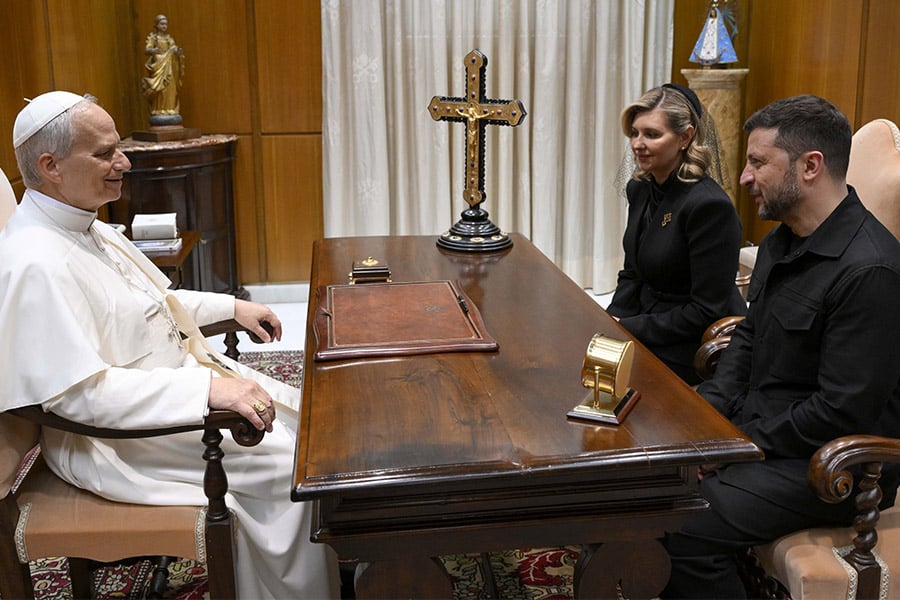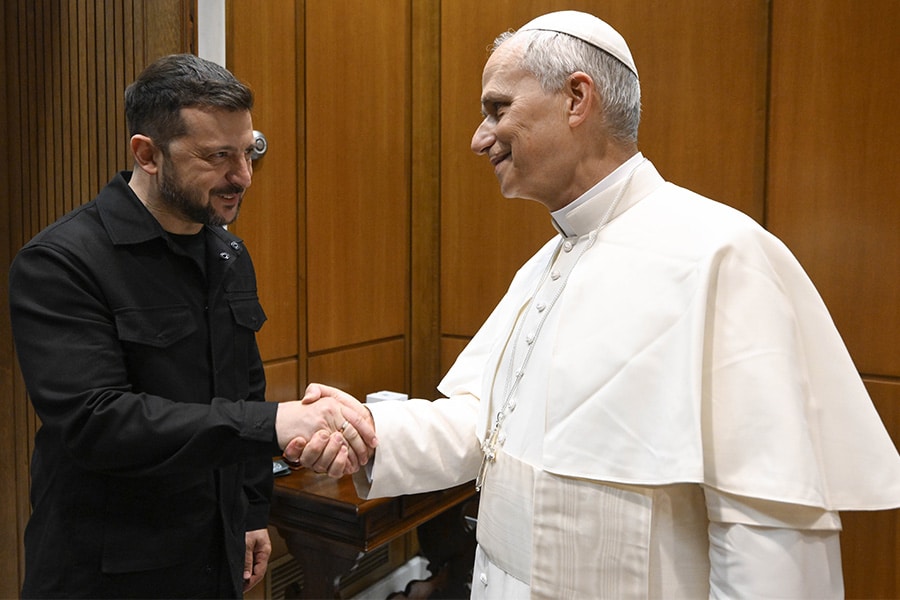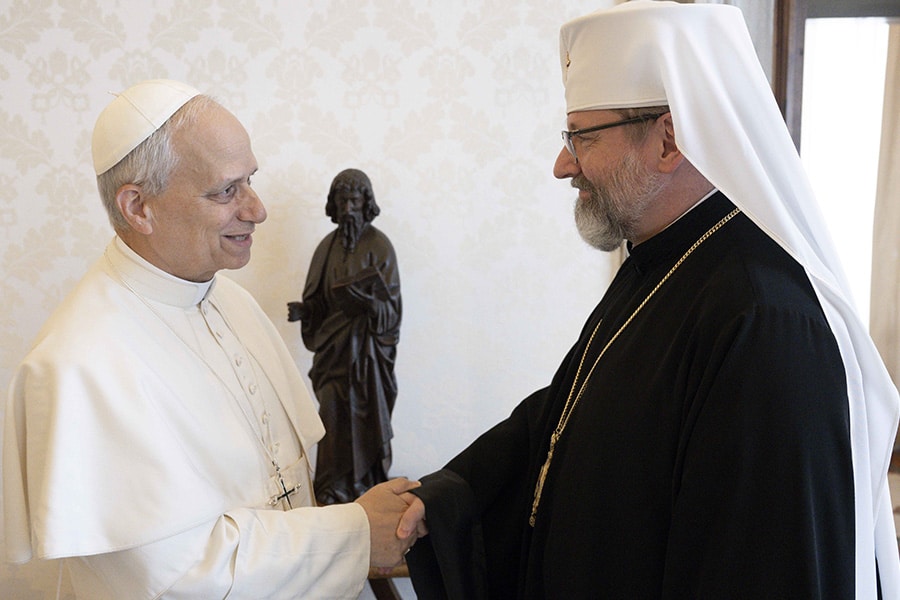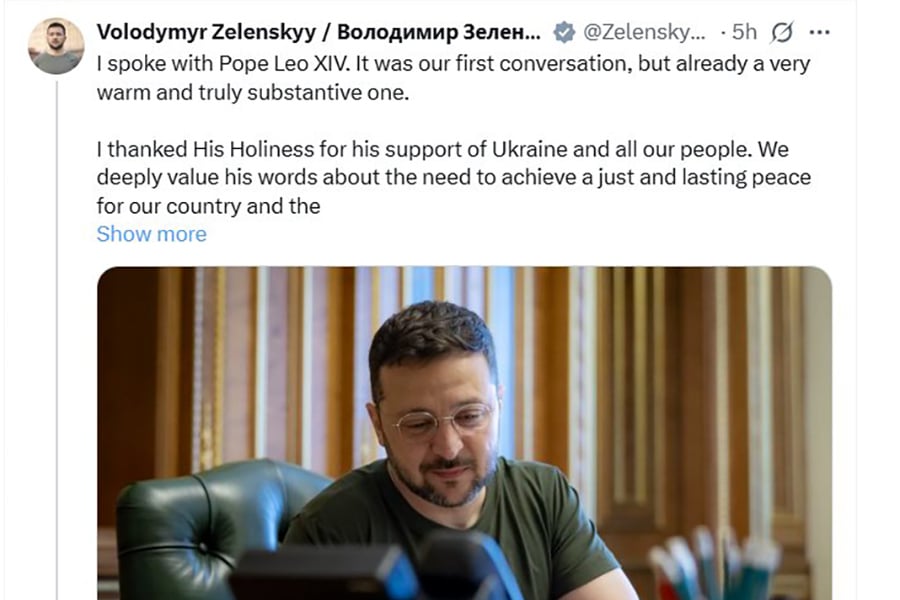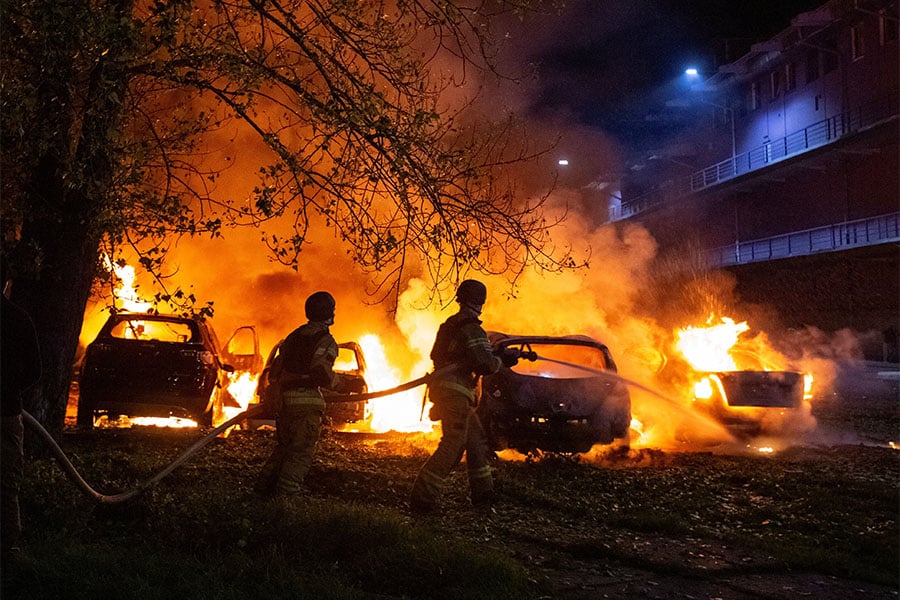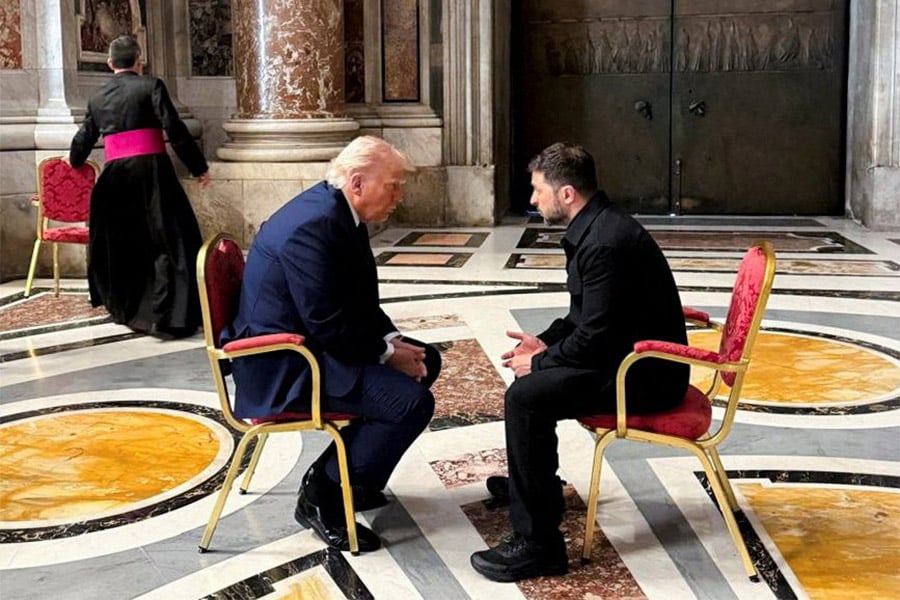WASHINGTON, D.C. (OSV News) — Russia’s aggression poses “the biggest threat to religious freedom in Ukraine,” said Metropolitan Archbishop Borys Gudziak, head of all Ukrainian Catholics in the U.S., during a Jan. 30 panel discussion on the subject.
The archbishop was one of several participants in the online roundtable “Is Religious Freedom Under Threat in Ukraine?” that was co-sponsored by the Berkley Center for Religion, Peace and World Affairs at Georgetown University and the Washington-based Religious Freedom Institute.
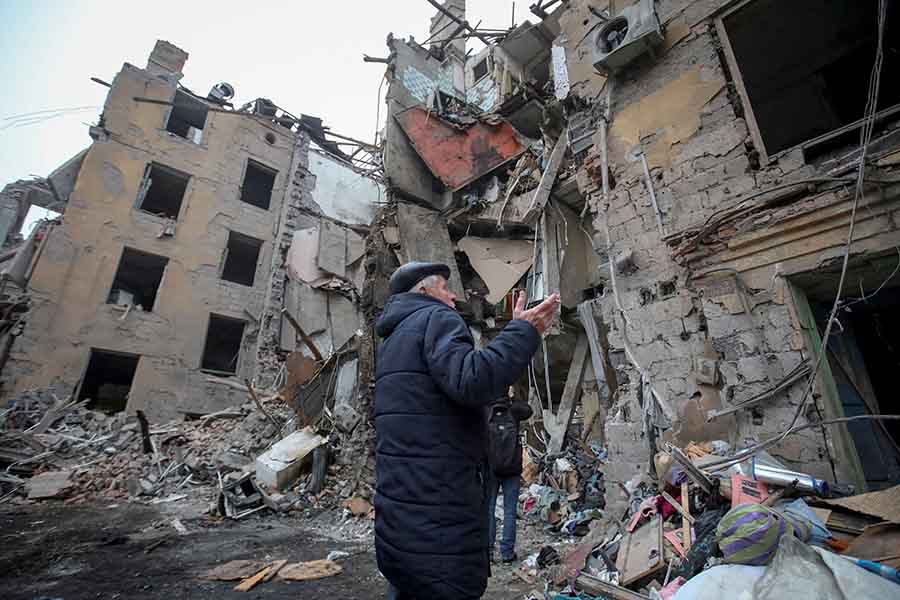
Joining Archbishop Gudziak were José Casanova, a senior fellow at Berkley and a scholar in the sociology of religion; Nadieszda Kizenko, professor of Russian and East European history and director of religious studies at the University at Albany (State University of New York); discussion moderator Eric Patterson, president of the Religious Freedom Institute and a research fellow at Berkley; Frank Sysyn, director of the Peter Jacyk Center for Ukrainian Historical Research at the Canadian Institute of Ukrainian Studies and professor in the Department of History and Classics at the University of Alberta; and Catherine Wanner, professor of history and anthropology at Pennsylvania State University.
Speaking by video call from Paris, Archbishop Gudziak said Russian attacks on Ukrainians “over the last three centuries … (have led) to some kind of religious repression.”
He noted that Russian attacks from the 18th century to the present have particularly impacted Ukrainian Catholics, “who are always outlawed sooner or later by any Russian occupying regime, whether it’s tsarist, communist or Putinist.”
Since declaring independence in 1991 after the fall of the Soviet Union, Ukraine has constitutionally protected the freedom of religion, ensuring a separation of church and state.
The nation has developed “a very admirable expression of religious freedom and diversity, (with) over 100 different confessions” that “range the whole Christian spectrum” as well as Jewish, Muslim and other faith traditions, said Archbishop Gudziak, noting that Pope Francis met with members of the All-Ukrainian Council of Churches and Religious Organizations Jan. 25.
However, the majority of those groups have come under pressure from Russia over the years.
A 2019 report from the U.S. State Department’s Office of International Religious Freedom noted that Russian proxy authorities imposed stringent registration requirements on various faiths, outlawing the Jehovah’s Witnesses sect altogether and using minority faith buildings for military purposes.
Since Russia launched its full-scale aggression in February 2022, “numerous Baptists and a number of Orthodox priests have perished,” said Archbishop Gudziak, adding that two Ukrainian Catholic Redemptorist priests — Father Ivan Levytskyi and Father Bohdan Heleta — are currently being held captive and tortured by Russian forces. More than 100 religious sites in Ukraine have been damaged or destroyed as a result of Russia’s attacks over the past year, according to UNESCO.
Historically, the Russian Orthodox faith has had a deeply entwined relationship with the state, fostering a religious nationalism known since the 19th century as “ethnophyletism,” said Casanova.
Close to 80 percent of Ukraine’s population identifies as Orthodox, but that affiliation has become increasingly complex in light of Russia’s decade of aggression against Ukraine, which began with 2014 attacks on the Donbas region and the attempted annexation of Crimea.
In January 2019, Ecumenical Patriarch Bartholomew I of the Constantinople Patriarchate – the “first among equals” of the Orthodox churches — formally recognized the independence of the Orthodox Church of Ukraine. A few months prior, he had restored Metropolitan Filaret, head of the Ukrainian Orthodox Church-Kyiv Patriarchate — an independent Orthodox Church in Ukraine — to full communion.
In response, the Russian Orthodox Church severed communion with Constantinople. Russian Orthodox Patriarch Kirill, a close ally of Russian president Vladimir Putin, has vigorously endorsed the war on Ukraine, even reassuring Russians that “sacrifice in the course of carrying out your military duty washes away all sins.”
Archbishop Gudziak said that “some of the things Patriarch Kirill has been saying (are) rather in symphony with jihadist language.”
The Ukrainian Orthodox Church, which had traditionally remained loyal to Russia, broke with the Moscow Patriarchate in May 2022 over Patriarch Kirill’s stance on the invasion of Ukraine.
Despite the break, Ukrainian officials remain wary of the UOC and lingering loyalty to Russia. In December 2022, the Ukrainian government called for investigations of links between Ukrainian and Russian Orthodox churches, while formally banning activities of all religious organizations “affiliated with centers of influence” in Russia. Several suspected pro-Russian Orthodox clergy have been detained and searched. The Ukrainian government also reclaimed the Dormition Cathedral and the Refectory Church in Kyiv — part of the Kyiv-Pechersk Lavra complex, a UNESCO World Heritage site — after the UOC’s lease of the property expired Dec. 31, 2022.
Kizenko expressed concern that such efforts were an overreach, noting that while “the UOC missed a chance to distance itself” from individual collaborators, “those mistakes … do not give the Ukrainian government a right to deny the (UOC)’s right to exist as such.”
Casanova said he did not believe religious freedom was “fully” under threat in Ukraine, but stressed “we must be careful and vigilant to protect the unique model of religious pluralism that has emerged” in that nation.
Sysyn said Ukraine faces a balancing act amid the battle, having to “maintain religious freedom … to the degree it can,” while maintaining “the right to investigate … individuals and contacts with the ROC.”
More broadly, “this war denies anyone any kind of freedom at all, religious or otherwise,” said Wanner.
“We’re not talking just about abstract rights,” said Archbishop Gudziak. “(Russia poses) a deadly danger for religious confessions, and I think this needs to be remembered.”
Gina Christian is a national reporter for OSV News.
Read More Crisis in Ukraine
Copyright © 2023 OSV News


